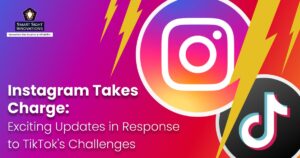 The ecommerce industry has transformed the internet into a big marketplace for small and large companies. Technology makes it possible for small players to offer the best customer experience and gain market share. Here’re vital points to focus on before starting an ecommerce business.
The ecommerce industry has transformed the internet into a big marketplace for small and large companies. Technology makes it possible for small players to offer the best customer experience and gain market share. Here’re vital points to focus on before starting an ecommerce business.
The state of the e-commerce sector in India
Amazon, Flipkart, Alibaba, PayTM (One97 Communications Ltd), MakeMyTrip, BookMyShow, Snapdeal (Jasper Infotech Pvt Ltd), Just Dial Ltd, Myntra, and FirstCry make it in the list of top e-commerce players in the country. Walmart and Samara Capital have already entered India via Flipkart, while other international players are keen to enter the market but are waiting for more clarification on the country’s e-commerce policy draft. The sector also includes the countless number of small tech startups operating in various Indian cities. By 2022, India’s online shopping market is all set to cross the $150 billion mark. Thus, this is the best time to enter.
Understanding the B2C (business to customer) business model
The model adopted by businesses to sell their products directly to the consumers via the internet instead of selling them to wholesalers or other third parties is referred to as B2C.
Real-estate, travel, online banking, auctioning firms, and even health care companies use this business model to deal with consumers directly.
The business model proves beneficial for both, the customer and seller. The seller does not need to pay commission to the wholesale purchaser. Thus, the business can afford to offer products or service to the customer at a discounted price via the e-commerce portal.
Wholesale purchaser or brick and mortar stores are often concerned about brand recognition while buying something for selling it further. On the other hand, individual consumers show a more significant interest in getting the best quality at an affordable price. So, startups can start selling even before they create their brand identity with advertisements.
Today, besides large brands, most of the startups in India use this model to take their products directly at the consumer’s doorstep instead of depending on the traditional channels.
Even brick-and-mortar shops and chains are transforming themselves into online sellers as they do not wish to miss the train.
E-commerce is the need of today’s business world
Since the last decade, web-commerce has become an integral part of business operations for companies. Now, the smartphone boom has added m-commerce in the list. Overall, ecommerce has revolutionized the way businesses around the world work and generate revenue.
Compared to running physical stores in various parts of the country, the operational cost for selling products on an online portal is meager. Online selling also increases the revenue as there are no geographical boundaries for selling goods. For example, companies based in China sell herbal medicines to consumers in Europe via websites.
Customer acquisition has become easy. People use search engines to find products online and get diverted to ecommerce portals selling the same within seconds.
As buyers share their product or service related experience on Instagram, Facebook, Twitter, and other social channels, the e-commerce store automatically gets social recommendations.
How to select the best ecommerce web development team?
High-quality images, product description videos, and the best possible text description for the item are some of the basic requirements that every visitor expects. For offering the best possible customer experience on web and app, the online shopping portal needs to keep up with the changing technology. Adopting Artificial Intelligence, Machine Learning powered recommendation engine, chatbots, best ecommerce landing pages, search bar, and smart shopping cart are a part of ecommerce development best practices list these days.
The developers should be able to implement Natural Language Processing (NLP) and related widgets to ensure the portal responds to the search queries and transactions initiated using virtual voice assistants like Alexa.
Work with a team of developers who have experts to manage the web as well as mobile apps. You can choose between a platform-specific native app or go for hybrid applications.
What is the meaning of the application development life cycle?
The ecommerce application development process consists of eight crucial stages. The first phase is dedicated to research and pre-planning.
What are the main functions to be included in the application? Would the app focus on Android or target creamy layer consumers with Apple? Who would be the target users for the software? Developers sit with the client for a brainstorming session and find answers for the above questions to select the theme/platform/functionalities accordingly. Timeframe and budget need to be planned in this stage.
Just like in the case of ecommerce website cost, the app development charges also vary according to the features and widgets that need to be added in the software.
As the second step, app developers present ideas in the form of detailed sketches to the client for getting their feedback. Loopholes need to be pointed out and resolved. Then, the critical third stage that focuses on the selection of APIs, servers, mobile Baas, and other platform specific components.
During the fourth phase, engineers create a prototype and get it tested rigorously for touch gestures, workflow, loading time required for various devices and other user-experience related aspects.
After receiving feedback, the developers start working on UI, UX, and other design related elements as a part of stage five. At the end of this stage, engineers and client would be able to get a rough idea about how the application would respond to user gestures.
Phase six involves the actual application development work, and the seventh stage is making the app available for beta trial to a limited number of users. Finally, comes the eight and launching stage of the application. The app needs to be registered and made available on Play as well as the Apple app store. Developers offer assistance to small and large firms when it comes to the launching stage.
The relation between the ecommerce app development company and the client does not end after launching. The application needs to be updated, upgraded according to the market requirements and technological developments.
Are you looking for a trustworthy team of engineers to develop your e-commerce web portal as well as m-commerce apps? If so, you should surely get in touch and discuss your requirements with Smart Sight Innovations.














